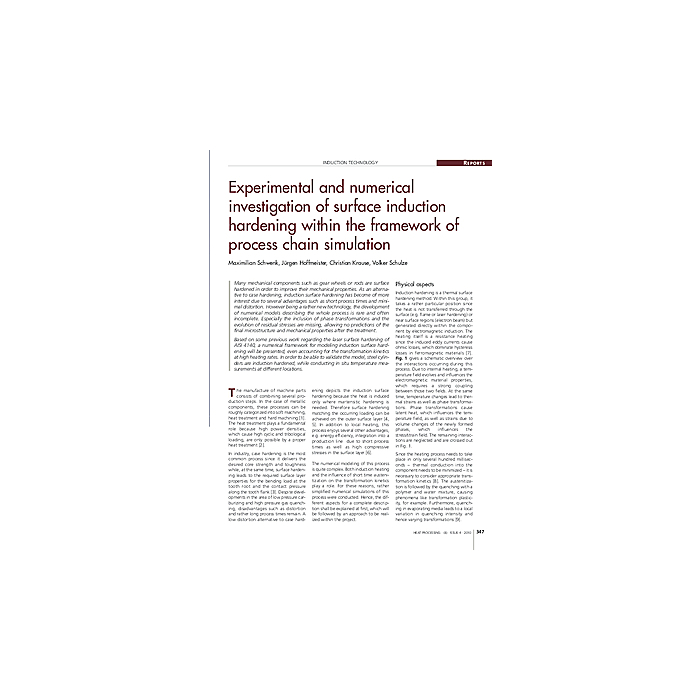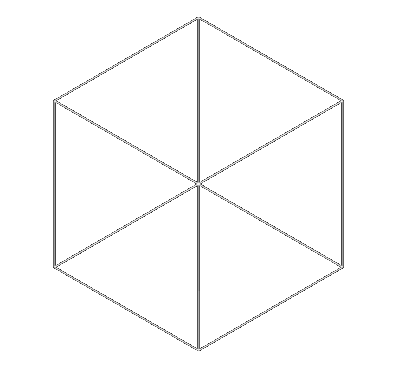Experimental and numerical investigation of surface induction hardening within the framework of process chain simulation
4,90 €
Auf Lager
Artikelnummer
00541_2010_04_05
Many mechanical components such as gear wheels or rods are surface hardened in order to improve their mechanical properties. As an alternative to case hardening, induction surface hardening has become of more interest due to several advantages such as short process times and minimal distortion. However being a rather new technology, the development of numerical models describing the whole process is rare and often incomplete. Especially the inclusion of phase transformations and the evolution of residual stresses are missing, allowing no predictions of the final microstructure and mechanical properties after the treatment. Based on some previous work regarding the laser surface hardening of AISI 4140, a numerical framework for modeling induction surface hardening will be presented, even accounting for the transformation kinetics at high heating rates. In order to be able to validate the model, steel cylinders are induction hardened, while conducting in situ temperature measurements at different locations.
| Autoren | Maximilian Schwenk/Jürgen Hoffmeister, Christian Krause, Volker Schulze |
|---|---|
| Erscheinungsdatum | 01.04.2010 |
| Format | |
| Zeitschrift | heat processing - Issue 04 2010 |
| Verlag | Vulkan-Verlag GmbH |
| Sprache | English |
| Seitenzahl | 5 |
| Titel | Experimental and numerical investigation of surface induction hardening within the framework of process chain simulation |
| Beschreibung | Many mechanical components such as gear wheels or rods are surface hardened in order to improve their mechanical properties. As an alternative to case hardening, induction surface hardening has become of more interest due to several advantages such as short process times and minimal distortion. However being a rather new technology, the development of numerical models describing the whole process is rare and often incomplete. Especially the inclusion of phase transformations and the evolution of residual stresses are missing, allowing no predictions of the final microstructure and mechanical properties after the treatment. Based on some previous work regarding the laser surface hardening of AISI 4140, a numerical framework for modeling induction surface hardening will be presented, even accounting for the transformation kinetics at high heating rates. In order to be able to validate the model, steel cylinders are induction hardened, while conducting in situ temperature measurements at different locations. |
Eigene Bewertung schreiben


